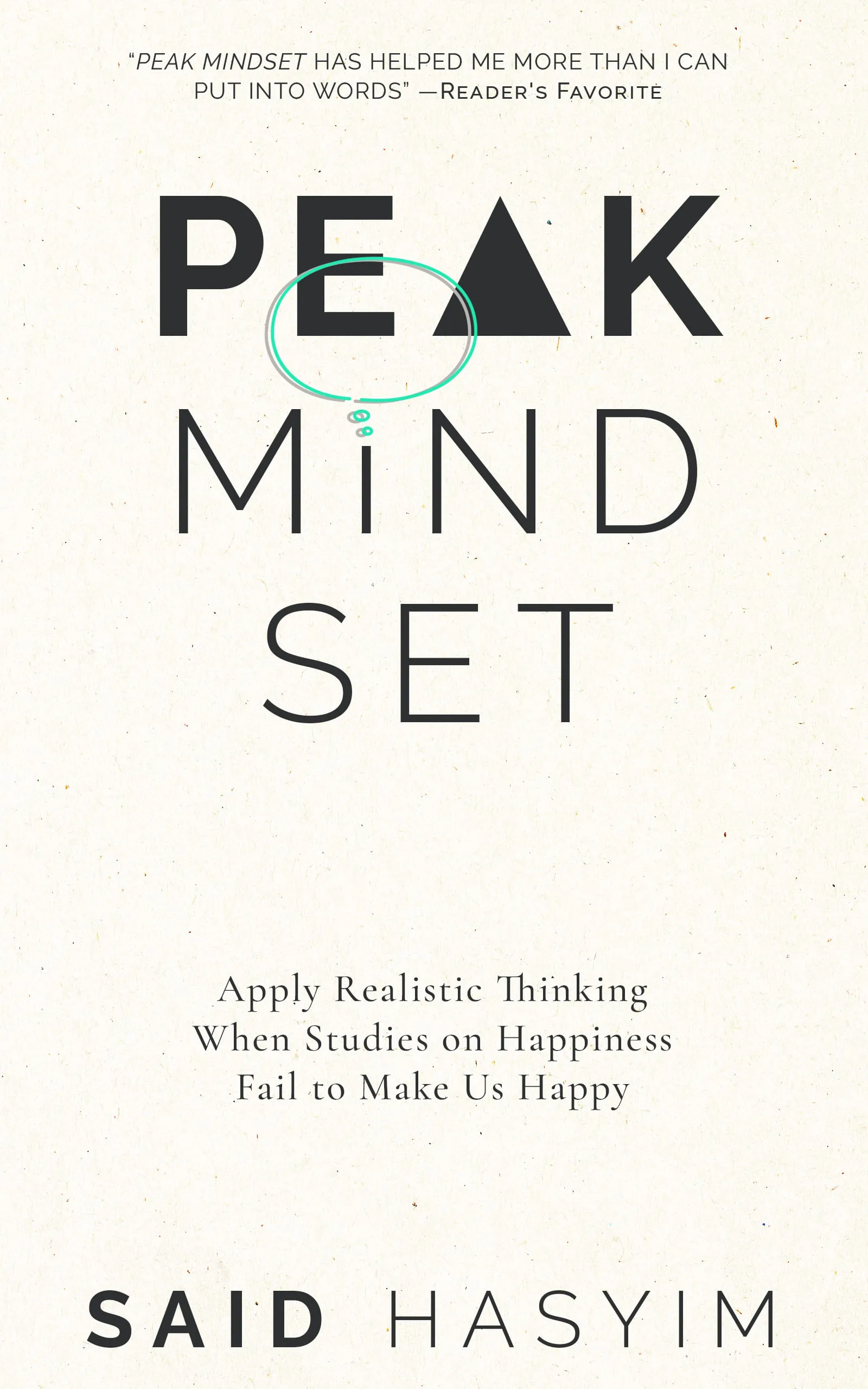Realistic Thinking: Your Path to Sustainable Happiness
In a world swarming with idealistic aspirations and glittering portrayals of success, it’s easy to lose sight of a crucial aspect of living a balanced, fulfilling life: realistic thinking. This approach not only enhances our well-being but also lays the foundation for sustainable happiness that lasts beyond fleeting moments of joy.
In this blog post, we'll explore what realistic thinking is, how it differs from purely optimistic or pessimistic views, and practical strategies to cultivate this mindset. By embracing realism, we can make more thoughtful decisions, enhance our emotional resilience, and ultimately pave the way to a happier life.
Understanding Realistic Thinking
Let’s begin by clarifying what we mean by realistic thinking. At its core, realistic thinking involves a balanced perspective on life. It means recognizing and accepting the imperfections of the world around us while still maintaining hope and motivation. This approach is grounded in a clear-eyed assessment of situations, acknowledging both the positive possibilities and the potential challenges.
The Balance of Optimism and Pessimism
Unrealistic optimism often leads to disappointment. For instance, believing that everything will go perfectly can blind us to potential pitfalls. On the other hand, extreme pessimism can result in anxiety and paralysis, preventing us from taking action. Realistic thinking occupies the middle ground: it fosters a mindset where we appreciate the good, recognize the bad, and prepare ourselves for both.
The Pitfalls of Idealism
Idealism, while motivating, can sometimes be a trap. Here’s how:
Unmet Expectations: Idealists often set lofty goals that can lead to feelings of inadequacy when those aspirations aren’t met. This discontent can breed anxiety and disappointment.
Neglecting Reality: By focusing too much on ideals, individuals may overlook important realities—like financial constraints, personal limits, and logistical challenges—that must be addressed to achieve their desires.
Fear of Failure: The stark contrast between the ideal and the actual can create a fear of failure, which may deter individuals from pursuing their passions altogether.
Why Realistic Thinking Matters
Cultivating a mindset of realistic thinking is essential for several reasons:
Emotional Resilience
Realistic thinkers possess a greater emotional resilience. By preparing for setbacks and challenges, they maintain a sense of control and adaptability. Instead of being knocked down by disappointment, they face challenges head-on, learn from experiences, and emerge stronger.
Authentic Relationships
When we embrace realism, we develop authenticity in our relationships. By expressing our true emotions, needs, and limitations, we create more genuine connections with others. Rather than fostering unrealistic expectations of ourselves and our loved ones, we encourage an environment of honesty and acceptance.
Better Decision-Making
Realistic thinking leads to more informed and balanced decision-making. Understanding the potential consequences and assessing available options promotes pragmatic planning and reduces the likelihood of impulsive choices driven by short-term desires.
Strategies for Cultivating Realistic Thinking
Embracing realistic thinking is a skill that takes practice. Here are some actionable strategies to help you develop this mindset:
1. Set Achievable Goals
- Start Small: Break larger aspirations into manageable, short-term goals. Instead of declaring, "I want to get fit," aim for, "I will walk 15 minutes every day."
- Celebrate Progress: Recognize and celebrate each small victory along the way, reinforcing the idea that progress, not perfection, is what matters.
2. Analyze Past Experiences
- Reflect on Failures: Rather than viewing failures as defeats, see them as teaching moments. Ask yourself what you can learn from these experiences and how to apply that knowledge moving forward.
- Identify Patterns: Recognize any recurring patterns in your decisions that lead to disappointment or failure. Adjusting your approach will lead to better outcomes in the future.
3. Embrace a Growth Mindset
- Cultivate Curiosity: Instead of fixating on the outcome, focus on the journey of learning and personal growth. Ask questions, seek feedback, and be open to new perspectives.
- Accept Change: Understand that your abilities and skills can develop over time, fostering a mindset where setbacks are part of the growth process rather than barriers.
4. Practice Mindfulness
- Stay Present: Mindfulness exercises, such as meditation or focused breathing, can help anchor you in the present moment. This practice encourages you to observe your thoughts and emotions without judgment, ultimately promoting a realistic, balanced perspective.
- Journal Your Thoughts: Write down your experiences, reflections, and feelings. This can help clarify your thought processes and enable you to distinguish between overly optimistic or pessimistic views.
5. Seek Support
- Lean on Trusted Friends: Surround yourself with people who can offer honest feedback and support. Their perspectives can help you see things more clearly and mitigate the tendency toward one-sided thinking.
- Professional Guidance: A coach or therapist can provide invaluable tools to improve your realistic thinking. They can help you analyze patterns of thought and develop healthier, more constructive ways of approaching challenges.
Conclusion
Realistic thinking is not about abandoning hope or ambition. Instead, it’s about grounding our aspirations in reality. By recognizing our limitations, embracing our imperfections, and learning from our experiences, we pave the way toward sustainable happiness.
As we navigate life’s challenges with a balanced perspective, we foster emotional resilience while nurturing authentic relationships and making more informed decisions. In embracing realistic thinking, we open ourselves up to a genuine path of fulfillment—one that allows us to pursue our dreams while remaining anchored in what’s achievable.
So, let’s commit to realistic thinking today. Embrace your journey with open arms, lighten your burdens, and find joy in the beauty of authenticity. Your path to sustainable happiness awaits!
Leverage Your Mindset for a Fulfilling Life
Explore Peak Mindset, a book to leveraging your subconscious for a more fulfilling life. Gain insights into realistic thinking, money management, and stress resilience to make informed decisions. Discover pitfalls in conventional happiness advice and practical strategies for self-transformation. Unlock your potential and enhance your overall satisfaction.
